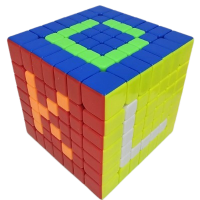Range convincingly explains how the integration of diverse topics is a capability in which humans uniquely excel and shows where we can use AI‘s strengths to complement. David provides invaluable guidance on formulating an approach to study a broad range of topics. He also delves into the various pathways for evergreen learning, underscoring how we often voluntarily avoid them. I have incorporated these concepts to reshape my learning approach by deliberately focusing on nurturing my curiosity and integrating new concepts and ideas into my daily work.
You should read this book if you…
- are interested in how to learn across broad topics without a formal structure (i.e., degree program)
- want to better understand the strengths of the human mind vs AI
- could use a more effective way to integrate new learning into your existing skill set
Additional Information
Year Published: 2019
Book Ranking (from 1-10): 9 – Excellent – Broad and very well articulated insights
Ease of Read (from 1-5): 3 – Average
Key Highlights
- Sampling several different practices allows you to learn about your abilities to find what best matches your skills
- Narrowing too quickly causes one to be overconfident and worse with experience. Slow learning pays off in the long term
- Human’s greatest strength vs machines is the ability to integrate broad topics
- To learn something new, dive right in and improvise, learning the rules later. When you learn to read you learn sounds first, grammar later
- Make learning easy to make it hard. It will be slower and frustrating in the short term leading to much greater retention
- Interleave (i.e. mix up) your learning subjects, which will encourage you to create abstract generalizations that can be applied to new situations
- Analogical thinking (creating analogies) takes the new and makes it familiar to reason through new problems
- Determine the deep structure of a problem before matching a strategy to it: A problem well put is half solved
- Winners quit fast when the plan isn’t the best fit
- We recognize our desires and motivations changed a lot but believe they won’t change much in the future. We’re works in progress claiming to be finished
- We discover the possibilities by doing, by trying new activities, building new networks, finding new role models We learn who we are in practice, not in theory
- Be a producer, not an engineer
- Be science focused and always look for new evidence, regardless of whether or not it agrees with your current beliefs
- Practice incongruence: balancing aligning to the organization with an informal culture of individual autonomy and decision making leading to potential dissent
- Consensus is nice to have but we aren’t optimizing happiness, we’re optimizing our decisions
- Innovation can often come from migrant’s arbitrage: taking an idea from one market and applying it to another where it’s rarer and more valued

Discover more from The Broader Application
Subscribe to get the latest posts sent to your email.
